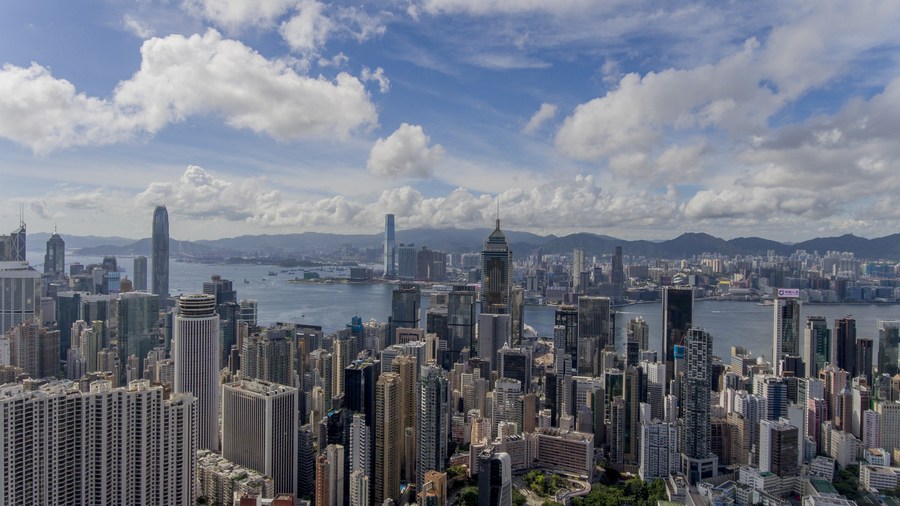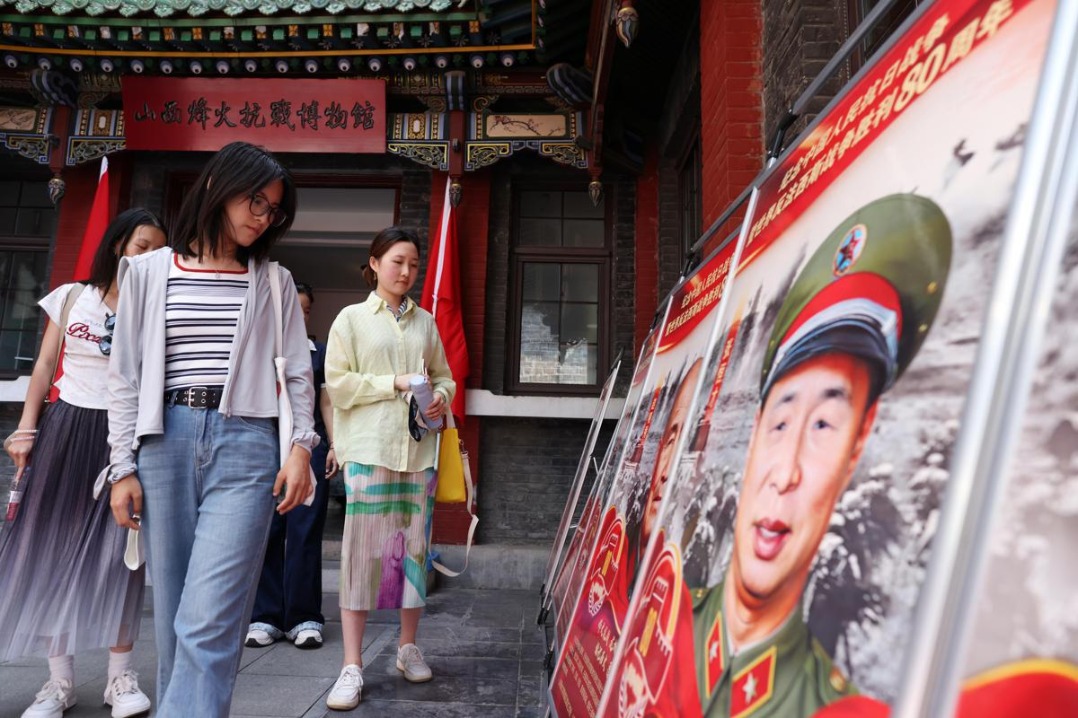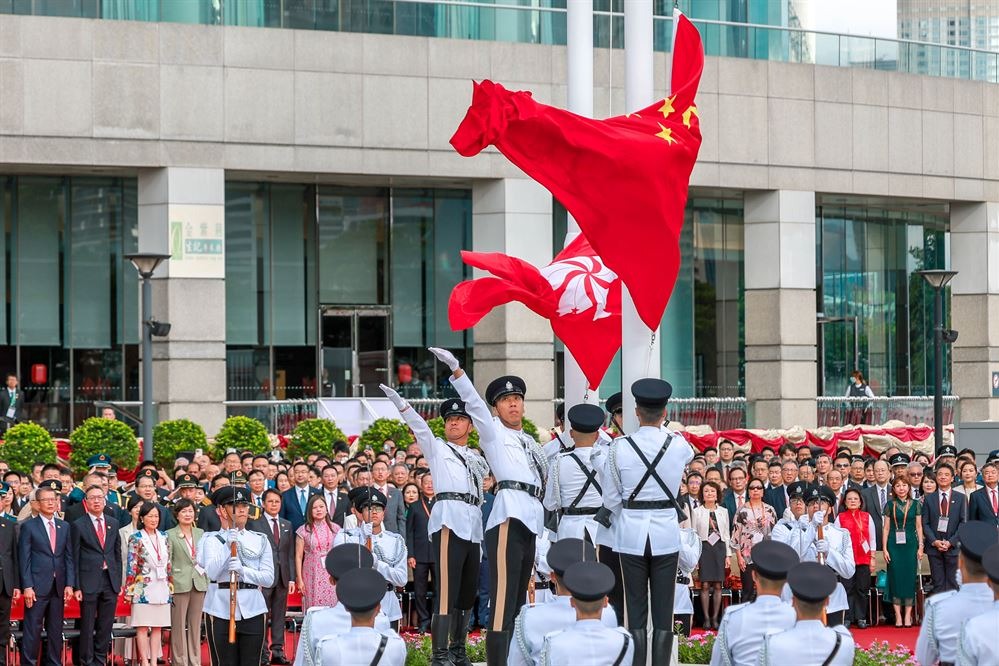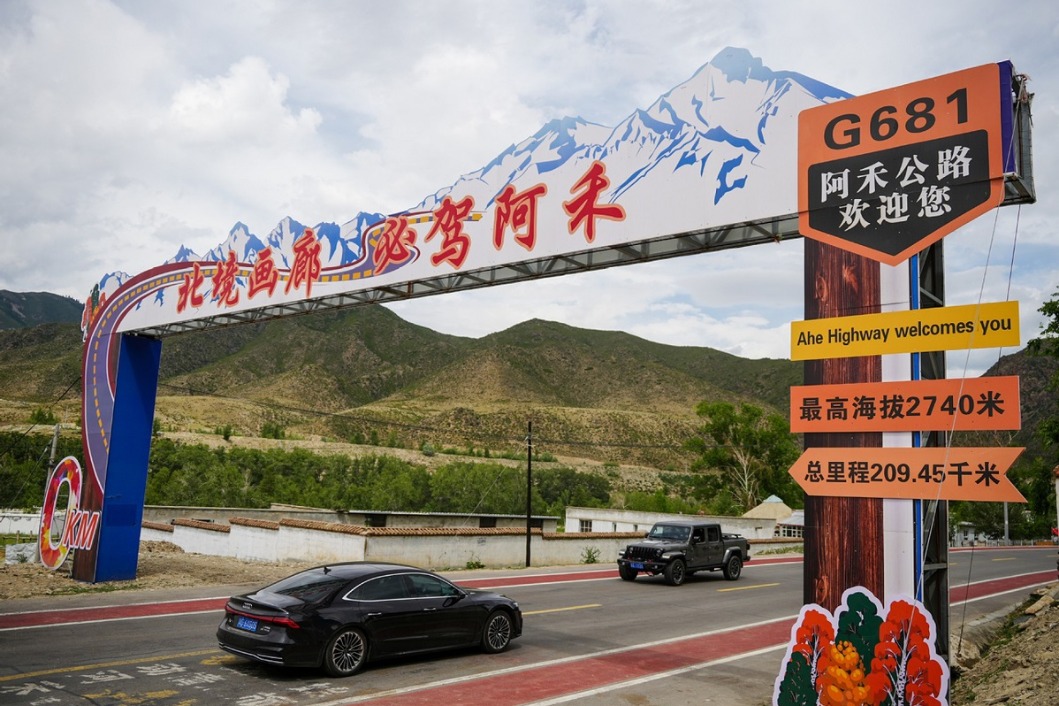Hong Kong society's sense of superiority now obsolete


President Xi Jinping, in his speech at the gathering last week to celebrate the 40th anniversary of the Shenzhen Special Economic Zone, gave the city in Guangdong province neighboring Hong Kong some new requirements on reform and opening-up.
One of them is to develop the Guangdong-Hong Kong-Macao Greater Bay Area and enrich the practice of "one country, two systems". Before trying to elaborate on Xi's message, I wish to first clarify a misunderstanding and a preconception of "one country, two systems".
The misunderstanding I am addressing sees "one country, two systems" as only relevant to the Hong Kong and Macao special administrative regions, and concerns the preservation of their capitalist system way of life but nothing else.
In fact, "one country, two systems" is short for "two social systems-a socialist system on the Chinese mainland and a capitalist system in Hong Kong and Macao-existing side by side in one country: the People's Republic of China. It concerns the main body of the country (the mainland) as much as it does the two SARs, and definitely not just Hong Kong or Macao.
The preconception I wish to refute is that Beijing chose "one country, two systems" as the constitutional arrangement for Hong Kong and Macao because their capitalist system is superior to the mainland's socialist system. It is similar to the assumption that the mainland's reform and opening-up will lead to the adoption of capitalism on the mainland; but both have been proved wrong in theory as well as practice-through decades of the development of socialism with Chinese characteristics on the mainland.
With the above two points in mind, it is easy to understand why President Xi expects Shenzhen to "advance the Greater Bay Area development and enrich the exercise of 'one country, two systems 'at the same time".
Hong Kong society must abandon its obsolete sense of superiority over the mainland vis-a-vis the social system and economic development. Although Hong Kong and the mainland will maintain their very different social systems for the foreseeable future, the fact that the mainland's socialism with Chinese characteristics is doing much better than Hong Kong's free capitalism transplanted from the United Kingdom is simply undeniable; the latter can no longer deny or hide its serious flaws.
It is time for Hong Kong society to let go of its blind faith in capitalism as a superior system to the mainland's and commit to fixing the crippling flaws of the capitalist system through reforms of its own. At the same time, Hong Kong society must also recognize the fact that hardly any edge that Hong Kong has over its neighbor Shenzhen still exists today. Keep in mind that per capita GDP is not the only criterion in economic development; the disposable income of local residents and access to public services are equally important markers of people's well-being. For example, Hong Kong, a city of 7.4 million, still does not have a universal retirement safety net, while the vast majority of mainland residents do.
Only by treating the mainland on equal terms can Hong Kong view the difference between its capitalist system and the mainland's socialist system objectively and fairly within the context of one country.
It is also an undeniable fact that the economy of Hong Kong cannot survive without the country. Attempts by political forces bent on obstructing Hong Kong's integration into the nation's overall development strategy are doomed to fail precisely because they refuse to accept this reality and therefore cannot win majority support. In this respect, the Bay Area represents the integrated development of Hong Kong, Macao and nine major cities in Guangdong.
Xi listed six missions for Shenzhen to accomplish in higher-quality reform and opening-up in his recent speech. One of them is to do its best in advancing Greater Bay Area development. In Hong Kong, it is widely agreed by all walks of life as well as the SAR government that Hong Kong should play the lead role in that development, but not many people are willing to overcome the physical boundary separating it from the mainland or the ideological barrier keeping them in denial.
Such resistance has resulted in Shenzhen overtaking Hong Kong in economic growth and Macao stepping up integration into the development of the nine cities in Guangdong, while Beijing has had no choice but to let Shenzhen play the "critical role" in the Bay Area.
Guangzhou, Shenzhen, Hong Kong and Macao were listed as the four core cities in the "Outline Development Plan for the Guangdong-Hong Kong-Macao Greater Bay Area", unveiled on Feb 18 last year. On Oct 11, the central government announced a plan on implementing pilot reforms in Shenzhen to build the city into a demonstrative zone of socialism with Chinese characteristics in the next five years.
The move will give Shenzhen more decision-making power in the reform of key areas and critical stages of development. It will support Shenzhen in pursuing higher-quality reform and opening-up, creating high-quality development mechanisms, promoting the modernization of its governing system and capabilities, and accelerating the formation of a new municipal environment that will set an example for the rest of the country in deepening reform and opening-up on all fronts. It will enhance cooperation between Shenzhen and Hong Kong at a higher level, boost the "key engine" role in Greater Bay Area development and contribute to the growth of a modern, powerful socialist country.
The above-mentioned "key engine" or "core engine" represents the rise in status for Shenzhen in Greater Bay Area development. It represents greater responsibility for Shenzhen, serving also as a reminder and encouragement for Hong Kong to catch up with its neighbor.
In short, President Xi hopes Shenzhen will take the lead in promoting the development of the Greater Bay Area and enriching "one country, two systems" by accelerating its socioeconomic development, playing the role of a key engine for pushing and driving the development of Hong Kong, Macao and the eight other Guangdong cities involved besides Shenzhen. This should also motivate Shenzhen to improve socialism with Chinese characteristics, attracting Hong Kong and Macao with a stronger system.
The author is a senior research fellow at China Everbright Holdings.
- 2,000-year-old steel acupuncture needles unearthed in Jiangxi
- New carbon neutrality initiative launched in Beijing
- Three killed in downtown Guangzhou traffic accident
- How does the eight-point code profoundly change China?
- Xizang's first guide dog helps his owner break barriers
- AI revives 80 war veterans at memorial hall in Taiyuan





































